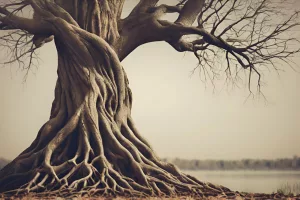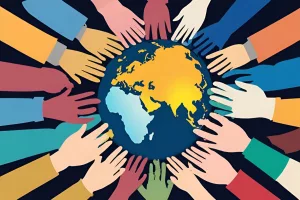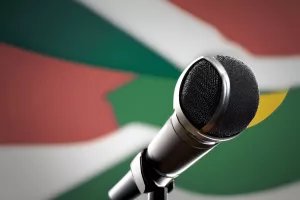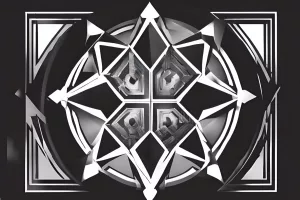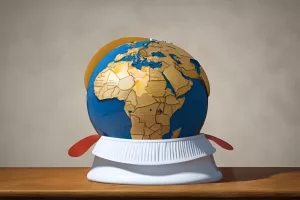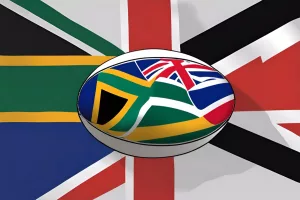Minister Thembi Nkadimeng highlighted South Africa’s progress towards inclusive development and talent development at the State of the Nation Address debate. She emphasized the transformative capacity of progressive local governments in creating a framework of inclusivity and advancement, embodied in the life of a citizen named Tintswalo. The government’s commitment to enhancing lives is apparent in its infrastructure development initiatives, opportunities for talent development, and partnerships with organizations for capacity building and disaster mitigation. However, challenges such as municipal debt and delays in statement finalization remain, emphasizing the need for enhanced supervision and strict fiscal discipline.
South Africa’s State of the Nation Address (SONA) 2024 highlighted the government’s commitment to socioeconomic and youth empowerment, tackling genderbased violence and promoting gender equality. The parliament celebrated the African National Congress’s commitment to realizing the goals outlined in the freedom charter, and the efforts made towards socioeconomic empowerment of women and youth. Despite progress made, challenges like genderbased violence and youth unemployment still remain, and the government is taking initiatives to address them. The SONA 2024 reflects the impressive strides South Africa has taken since the Apartheid epoch and calls for unity and progress towards a more prosperous future.
Dr. MJ Phaahla is the Honourable Minister of Health leading South Africa’s health sector. He has been fighting against Covid19 and focusing on Universal Health Coverage, human resource allocation, and infrastructure advancement in healthcare. The government is also addressing surgical procedure backlogs and HIV/AIDS, while advancing digital health systems. Dr. Phaahla emphasized the government’s commitment to enhancing the healthcare workforce, creating additional opportunities for doctors, and improving health services with infrastructure advancement.
Jerry Flannery, former Ireland hooker and assistant coach at Harlequins, has been appointed as the new defence coach of the Springbok team. His past involvement with the team during the World Cup preparations, familiarity with coach Rassie Erasmus’ style of operation, and experience as an international hooker make him the perfect fit for the role. Flannery’s appointment, along with the addition of Tony Brown as the attack coach, signals an exciting shift in the strategic direction of the Springbok team.
Gwede Mantashe, the Minister of Mineral Resources and Energy in South Africa, has played a crucial role in transforming the mining industry and achieving a fairer system of ownership, management, and acquisition. He highlights the government’s initiatives to cultivate a strong and inclusive mining sector and sustainable energy solutions. Mantashe emphasizes the enduring impact of apartheid and acknowledges the challenges that still exist, but his unwavering commitment to equitable development and honest engagement reinforces his vision of a united, prosperous South Africa.
The ANC government’s housing policies in South Africa have provided millions of houses to impoverished sections of society, contributing to women’s empowerment, emergency and disaster relief, and sustainable housing solutions. Minister Mmamoloko Kubayi leads the charge towards a fairer and kinder South Africa, advocating for social justice and balanced development, rooted in the core values of the ANC. The government’s commitment to continuous improvement is evident in the Draft Human Settlements White Paper, aimed at creating integrated human settlements that respond to modern trends and uphold every South African’s dignity.
Deputy President Paul Mashatile is facing corruption allegations, including nepotism and violating the code of conduct. The accusations, which have been ongoing for several decades, bring to light a trend of distrust and alleged malfeasance in South Africa’s political sphere. The charges could potentially damage public trust and weaken democratic structures, but they also provide an opportunity for transparency and reform within the political system.
South Africa is fast becoming a goto destination for international corporations seeking outsourcing partners due to its superior education system, vast pool of seasoned professionals, exemplary work ethic, and a comprehensive understanding of diversity. South Africans are celebrated for their relentless determination, adaptability, humility, honesty, and commitment to creating efficient networks and strategic alliances. Their ability to acclimate to any work culture, coupled with their honesty, resilience, and grounded nature, makes them an exceptional team player in any scenario.
Cape Town City Hall is significant for being the site of important democratic events and discussions, including the upcoming joint assembly of the National Assembly and the National Council of Provinces to analyze the President’s State of the Nation Address. The essence of parliamentary debates is to shape the nation’s path through open dialogue and shared responsibility. Media plays a crucial role in parliamentary proceedings, with virtual attendance possible for journalists and live broadcasts available to the public. The upcoming joint session symbolizes South Africa’s dedication to democracy, accountability, and advancement.
The use of snares anchored traps made from wire, rope, or cable is endangering the region’s native wildlife in South Africa’s Western Cape. Organizations, including the City of Cape Town and the Cape Leopard Trust, have taken measures to address the rising use of snares, including organizing a snare awareness information gathering and executing a snare patrol. The consequences of snaring go beyond the unsuspecting victims it primarily targets, as it disrupts the ecosystem and intensifies humanwildlife conflict. A Snare Free hotline has been set up for residents to report trapped animals, highlighting the critical role of community involvement in wildlife conservation efforts.
The 8th Annual Ubuntu Awards celebrated exceptional South African citizens who have made a significant impact on the country’s global interests and values. The awards honor the classic African philosophy of Ubuntu, which emphasizes empathy and affirms the dignity of an individual. The event promotes social cohesion, nationbuilding efforts, and economic diplomacy, recognizing the tireless efforts and dedication of diplomats and nominees that shape the global perception of South Africa.
Time Out Market Cape Town is a vibrant and dynamic culinary and cultural hub located at the heart of Cape Town, showcasing 13 exclusive kitchens, three bars, and cultural activities like jazz nights, comedy performances, and sip & paint events. The market offers an avantgarde experience that blends fine dining, cultural activities, and social interaction, providing an engaging peek into Cape Town’s burgeoning beverage industry. Conveniently accessible at the V&A Waterfront, the market celebrates Cape Town’s finest under one umbrella, making it a mustvisit destination for residents and tourists alike.
The Skills Revolution program in South Africa aims to equip citizens with the necessary knowledge and skills for social and economic engagement, combatting unemployment, poverty, and inequality. The Recognition of Prior Learning graduation ceremony for chefs exemplified the hopes and ambitions of a young, unified, and democratic nation. The program’s emphasis on qualification and placement, partnerships with institutions like Silwood School of Cookery, and successful completion rates show the effectiveness of the government’s efforts in empowering individuals and enhancing the economy.
England’s rugby strategy has come under scrutiny after they recruited Felix Jones, the South African Springboks’ defensive mastermind. Rugby legends Schalk Burger and Jean de Villiers have expressed skepticism about England imitating South Africa’s defensive style, as weaknesses were exposed in the Six Nations opener against Italy. Both former players question the logic behind employing Jones, who is primarily recognised for his offensive strategy, in a defensive role for England.
“Mamma Mia” is returning to South African stages, bringing with it a triumphant homecoming for the beloved trio Donna and the Dynamos. The production features a full cast and crew of South African talent, blending the charm of ABBA’s timeless music into an emotional and celebratory narrative. This unforgettable experience runs from March 7th to April 7th at the Artscape Opera House in Cape Town, and is highly recommended for all theatre aficionados.
South Africa’s mining industry has undergone transformations, with legislation such as the Mineral and Petroleum Resources Development Act (MPRDA) leading to a significant increase in black ownership from 2% to almost 39%. The government’s exploration strategy aims to draw investment for mineral exploration, promote optimal use of South African mineral resources, and enhance economic inclusion through the creation of an exploration fund for junior miners. This initiative, along with support for artisanal and smallscale miners, demonstrates the government’s commitment to remedying historical injustices and accelerating the integration of previously marginalized individuals into the mainstream economy.


